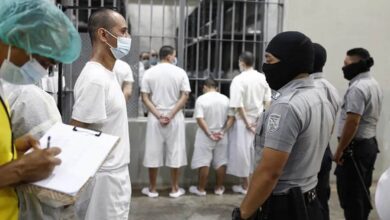The president, Dina Boluarte, asks the Peruvian Congress to advance the presidential elections to get out of the political crisis that the Andean country has been experiencing since the removal of Pedro Castillo.

Photo: AgainErick
LatinAmerican Post | Santiago Gómez Hernández
Listen to this article
Leer en español: ¿Por qué el Congreso de Perú no quiere adelantar elecciones?
If there is something that abounds more in Peru than political crises, it is the ego of politicians. A country plunged into chaos after the dismissal of Pedro Castillo and the coming to power of his vice president, Dina Boluarte, cries out for a quick exit. The strong police repression has claimed at least 58 lives, the majority of protesters against the current government.
In the first measure, Congress voted last Friday against advancing the general elections to 2023. The legislature decided by 65 votes against, compared to 45 in favor, on the initiative to speed up the elections. This demonstrates a divided congress, the main characteristic that prevented Castillo from governing and that Boluarte faces today.
Also read: Gender Parity Cabinets: Equality Policy or Campaign Proposal?
The elections are scheduled for April 2024, and many of the congressmen assure that this date is indicated and that it will not be necessary to advance it. This without realizing the request of those who voted for Castillo and today feel that their vote was stolen.
Why Doesn't Congress Want to Advance the Elections?
The short answer is because of ego and power. A large part of the legislators who voted against advancing the elections believe that the problem in Peru is the presidency. The departure of Castillo and the arrival of Boluarte is, according to what many protesters ask for, the "problem to be solved." These, then, defend a voluntary resignation of the executive. That is to say, that it be the president Dina Boluarte who makes her position available, and that not all the powers do.
What does this mean? That if the elections were to be brought forward, not only the presidency and vice presidency would be vacant, but the entire Peruvian Congress. So, many politicians defend maintaining their mandate to "fulfill their legislative agenda." However, many of the opponents of the Peruvian parliament see in this action an excuse for the congressmen to stay in power and not give up more than a year of salaries and benefits.
But if there is a more discredited body than the presidency itself, it is the congress. According to the latest report from the company CPI Research, 89% of Peruvians surveyed reject the administration of Congress, higher than 71% of the President of the Council of Ministers, Alberto Otárola, or 70.6% of President Boluarte. This makes it clear that in prompt elections, neither the current president nor the congressmen would end up doing well. This may be another of the reasons why the legislature sees it as inconvenient to advance the elections. They do not have the support and favorability to maintain their position, and they prefer that Boluarte be the one to step aside.
Precisely, they excuse themselves in that 62.8% of Peruvians think that the president should resign immediately, as she is the main person responsible for the current chaos. However, if you ask yourself whether the elections should be in 2024 (as Boluarte announced in December), in 2026 (for the period in which Pedro Castillo was elected), or call elections in 2023, 70.9% of respondents call for elections this year.
This is why as long as Congress or Boluarte do not step aside, thinking about the country's institutions more than their egos, the social crisis in Peru will continue. The risk is that with 58 deaths from the protests, the situation worsens every day that a solution is not reached. Thus, the possibility of entering into a much more delicate problem than the one the Andean country already has with its constant political crises remains.




